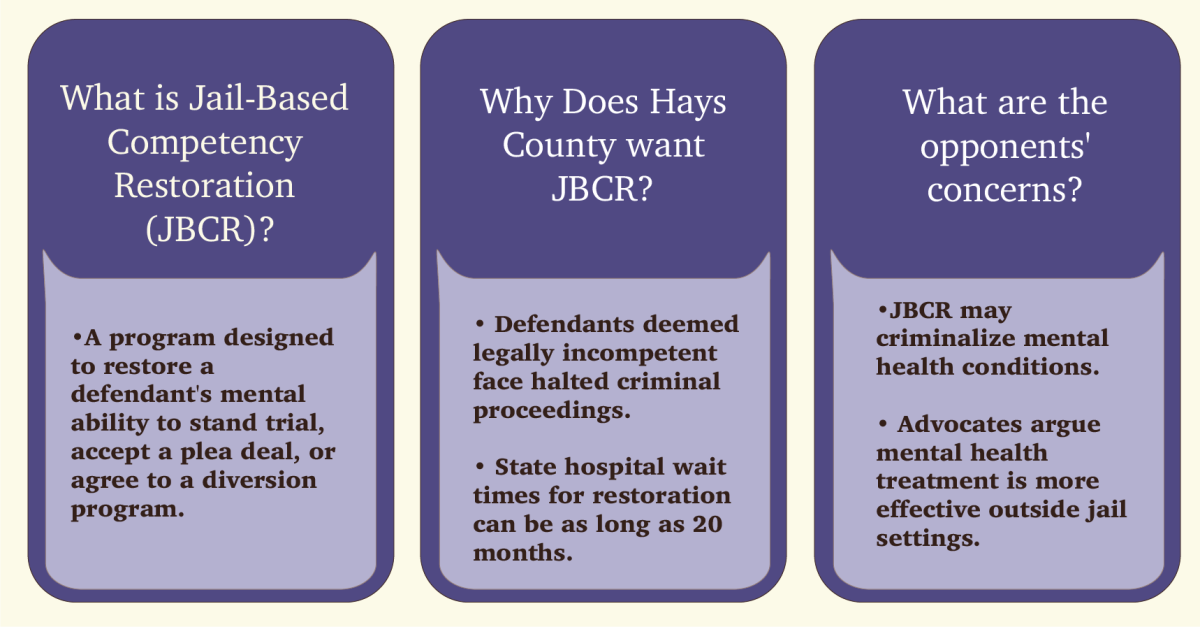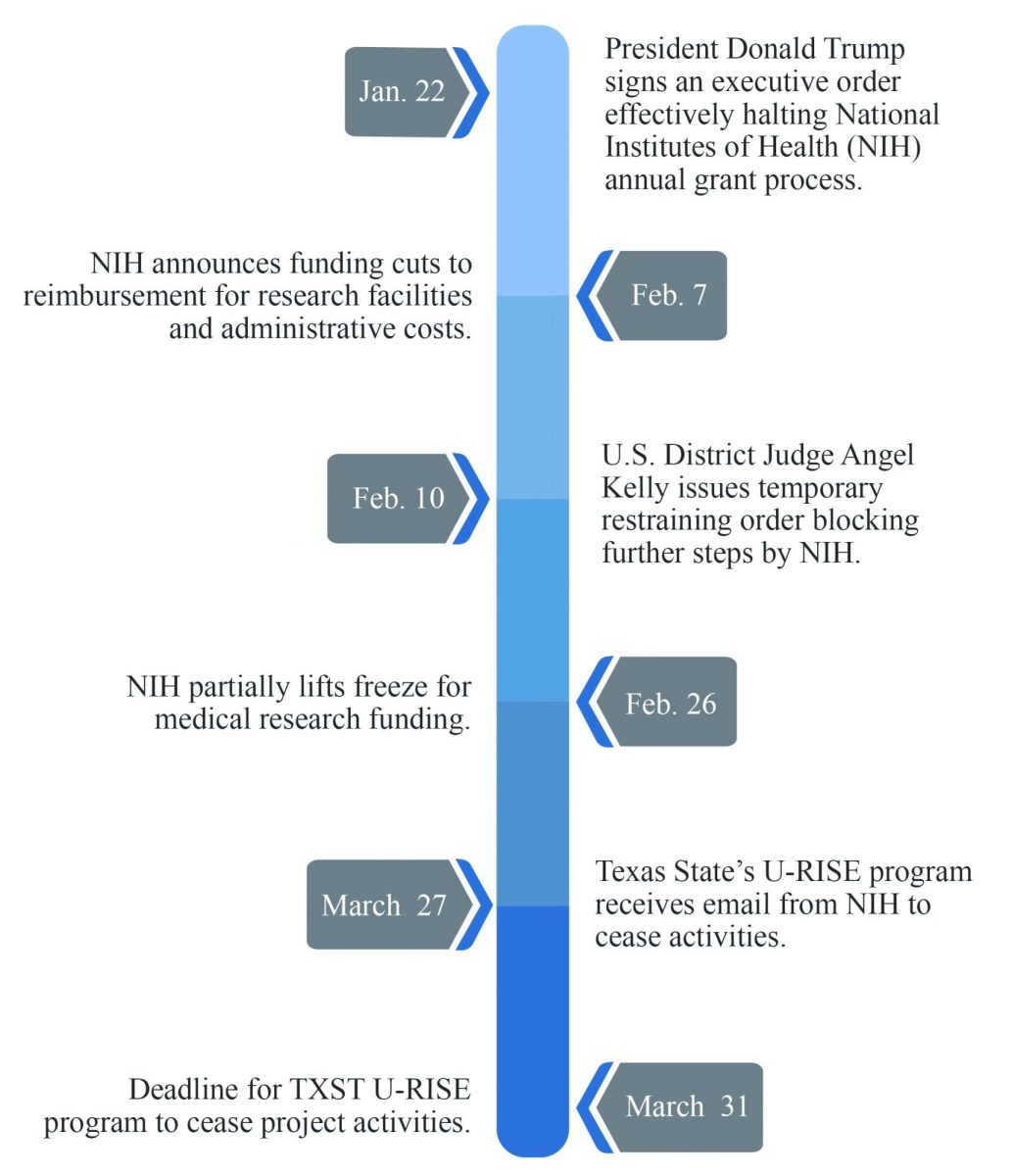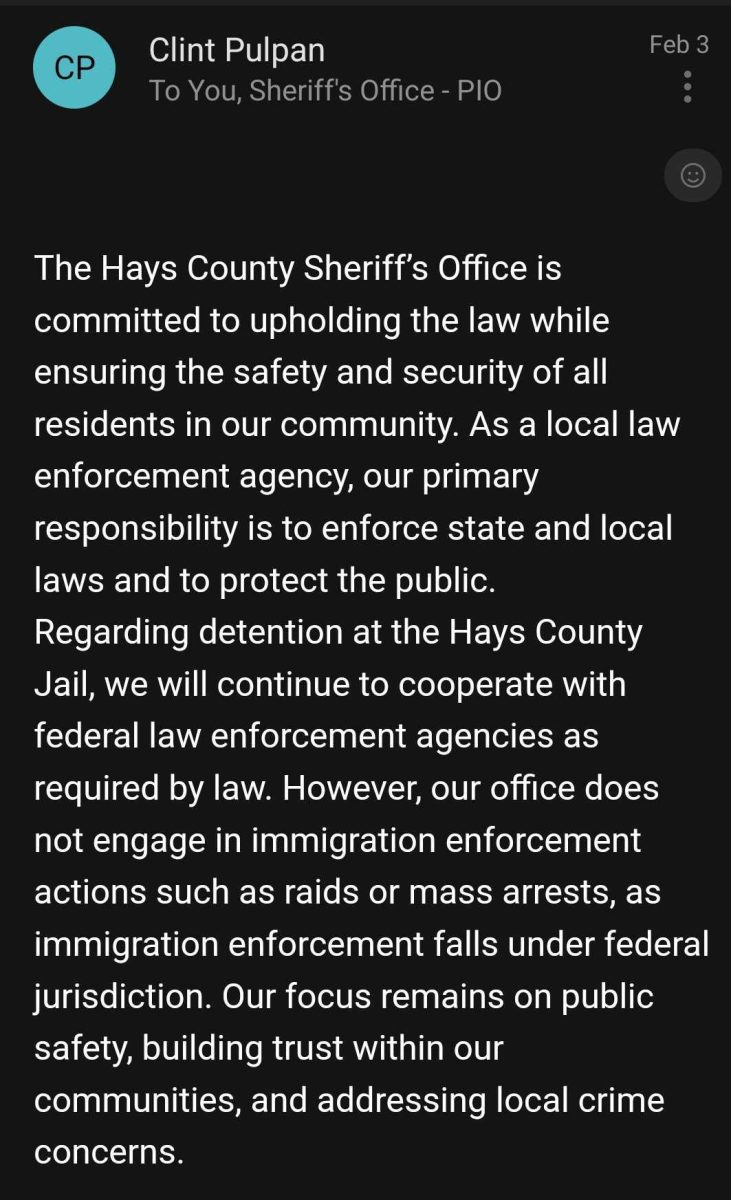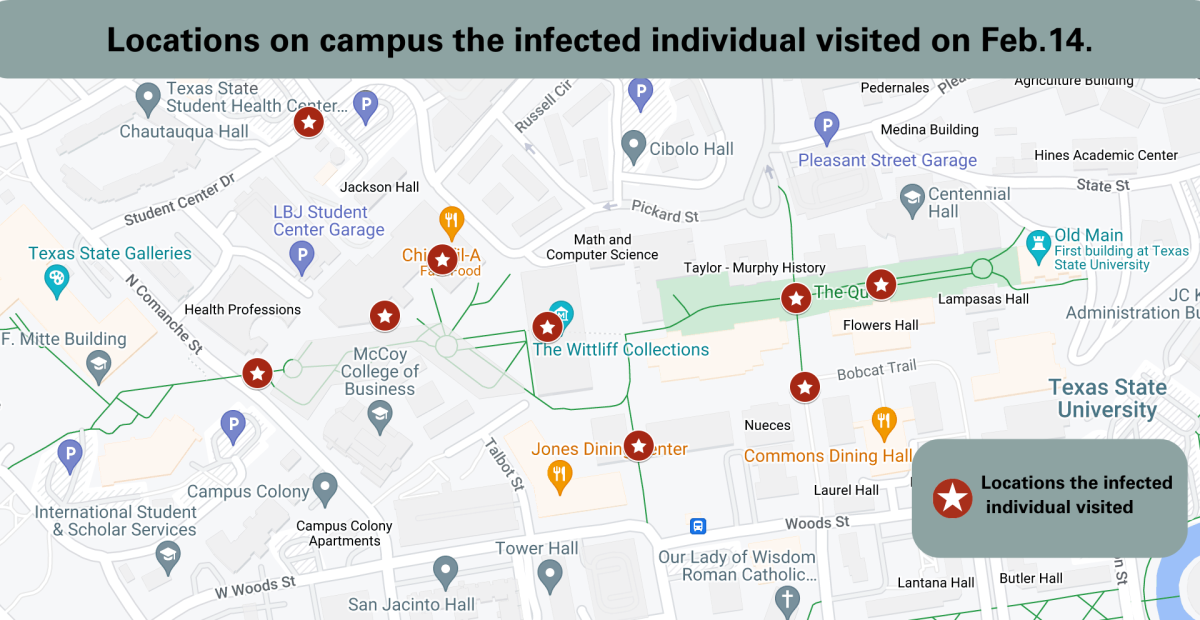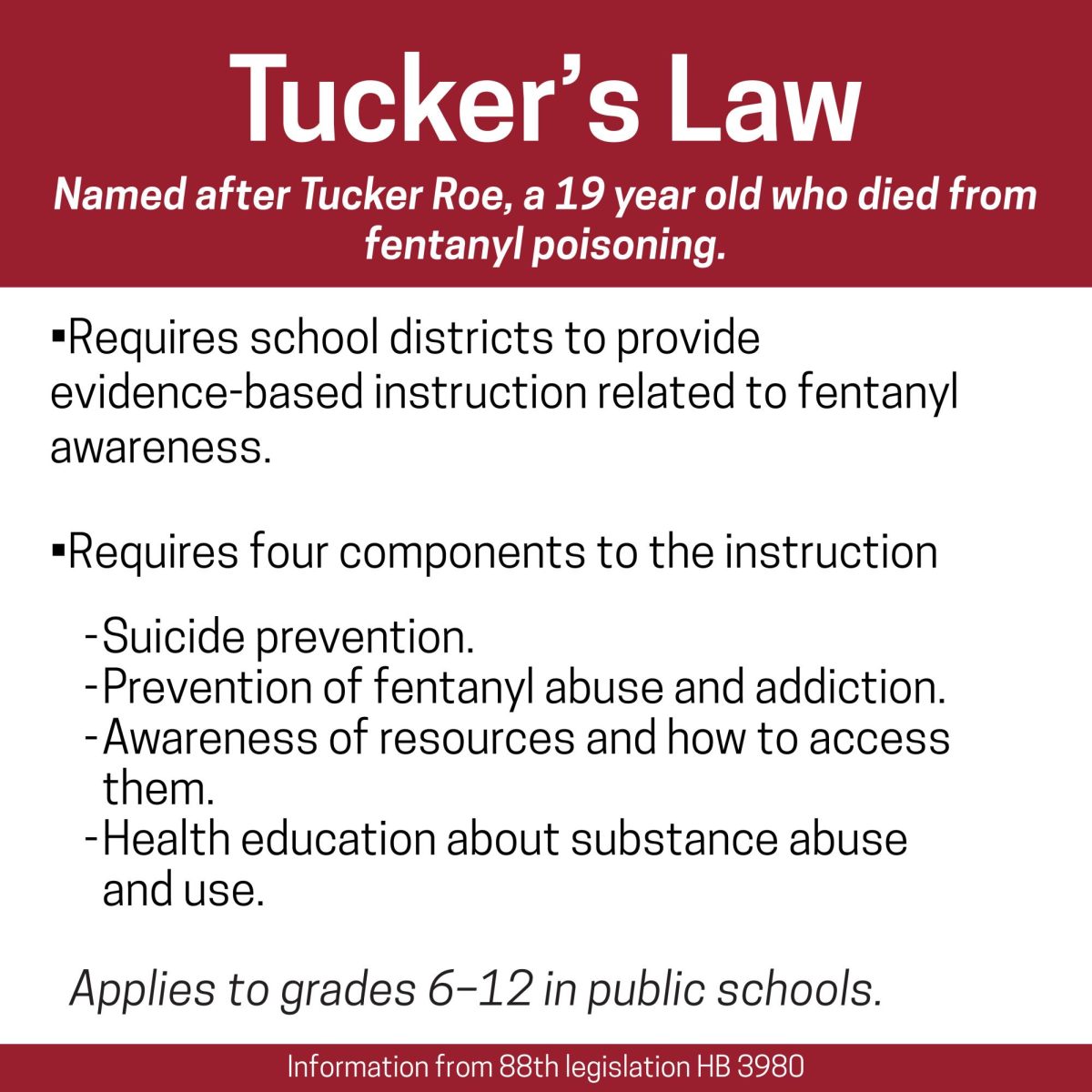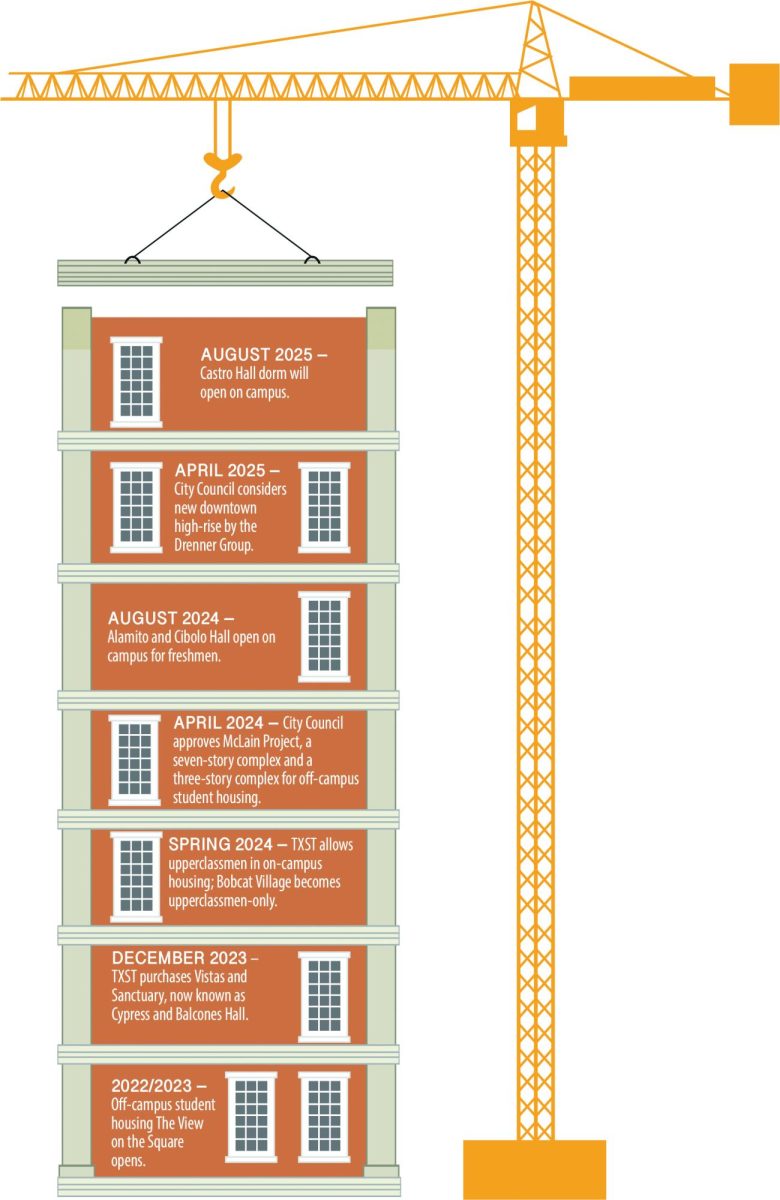The Hays County Commissioner’s Court approved the first steps toward establishing a program to restore mental competency to defendants in jail on Jan. 7.
Jail-based Competency Restoration (JBCR) seeks to restore the competency of detainees legally deemed mentally incompetent, meaning a judge has found them lacking the mental ability to consent to criminal legal decisions. Individuals deemed incompetent can not legally move forward with their case until their competency is restored.
“If we don’t have this program, what happens is someone who is deemed incompetent who’s sitting in our jail, waits up to 20 months for a bed at a state hospital?” Hays County Criminal District Attorney Kelly Higgins said. “In my view, this is because Texas doesn’t take care of people. It does not spend the money it needs to spend on mental health.”
Higgins said due to long wait times for a bed at a state hospital, defendants often spend more time in jail waiting for their competency to be restored than they would if they were convicted and sentenced.
“For me, that wait is is just patently, inherently inhumane,” Higgins said. “… It’s the worst place you could be, and you’re mentally ill, that’s a bad scene.”
According to Anthony Winn, the director of clinical operations for Hill Country MHDD, once implemented, the JBCR would seek to restore competency within a 45 to 60-day window. He said that if defendants fail to achieve that initially, they can ask a judge for a 60-day extension.
Winn said the restoration process would include 10 hours of treatment a day, which consists of group services, medication, education on courtroom language, mock trials and more. He said the treatment would be individualized for each defendant.
Hill County MHDD’s team that will be sent to the jail will include several different types of professionals. Winn said the team would consist of someone who has experienced mental health conditions, a “licensed practitioner of the healing arts,” licensed counselors and mental health professionals.
“What we call QMHPS, qualified mental health professionals, which are bachelor level mental health professionals who will be providing a lot of the daily programming,” Winn said.
Some members of the community spoke against the commissioner’s court approval of a JBCR. Karen Muñoz, justice catalyst fellow for LatinoJustice PRLDEF has been vocal in her criticisms of the program.
“I think my position is that I do think that it’s not logical and it’s not compassionate to believe that jails are a place where people can get treatment in the first place,” Muñoz said. “We could be having a conversation about creating competency restoration for Hays County outside of the jail setting.”
Muñoz said that she believes if mental health resources were more accessible before someone is arrested, it may reduce the number of people who end up in jail in the first place.
“Have we tried every single preventative measure in Hays County, have we truly invested in all of the different menu of items that could be offered up front, and I mean before law enforcement come into the picture? I don’t think we have in Hays County,” Muñoz said.
Muñoz also raised concerns over whether individuals would still receive care if they were released from jail after their competency is restored. According to Winn, continuing care is a condition of Hill Country MHDD’s program.
“Part of the program requirements include discharge planning, and so one of the things that we’re going to do as someone is restorative competency and discharging from the competency restoration program is we’re going to work with them to figure out what are the next steps,” Winn said.
According to Winn, continuing care means partnering with existing resources in Hays County, such as the Mental Health Court.
One thing Higgins and Muñoz agreed on is that a JBCR can be abused. Higgins said that a “mean-spirited DA” could use the program to force through convictions, but that he would not.
“To me, it’s a realistic, hypothetical concern, but it’s not realistic here. I mean, I don’t even know what our conviction rate is,” Higgins said. “I personally as the DA I’m not a wrathful person.”
According to Winn, the program is too early in development to have a finalized timeline for implementation.



